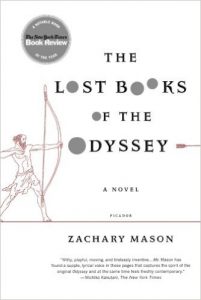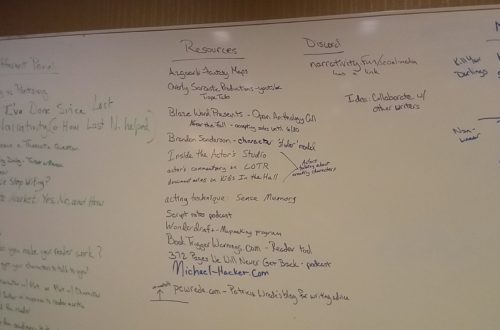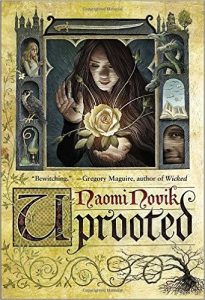
Book Reaction: So You Want to Talk About Race by Ijeoma Oluo
The thing is, I do not want to talk about race. I want to talk about culture and heritage. I want to learn about the people around me. I want to connect over little things like strict mothers and escaping into books and being obsessed with horses. I want to learn about different traditions and celebrations. I want my country, its people and institutions, to recognize the harm that was done to black people by slavery, to Native people by land grabs, to Japanese people in internment camps. I want us to admit this. I want us to own this, to teach it to our children in all its awfulness and horror. I want us to say unequivocally that this was wrong. And I do not want us to stop at slavery, with the end of the Civil War. I want us to look at Jim Crow, and the never “separate but equal” laws, and teach that those were also wrong. And I do not want us to stop with the Civil Rights movement. I do not want us to pretend that everything is better now. I want us to stop talking about race and to do the difficult work of changing our institutions, our systems, and our culture to make it so that we really can say that our country is based on the idea that “All men are created equal”.
And given that I am white, I could conceivably pretend all that was true and choose not to talk about race. But it is not true, as is proven to us over and over again when black boys are killed for carrying water guns, black men are killed for having a legally permitted concealed weapon which they disclose to police before revealing the weapon, black women are killed for failure to use a turn signal, black men are slowly choked to death on the street by police while a crowd watches for possibly passing a $20 counterfeit bill. And so, regardless of whether or not I WANT to talk about race, we need to talk about race.
But again, I am white. I should not be talking about race. I should be listening. I should be listening to people of color. I should listen to their lived experiences. I should listen to their concerns. I should take their goals as my goals, instead of deciding what I think needs to be fixed. And this was one of the reasons I chose to listen to Ijeoma Oluo’s So You Want To Talk About Race.
Another reason I chose this book was that Ms. Oluo grew up in and still lives in the Seattle area, the same area I live in. This was important to me because I did not want to be able to distance myself from her experiences. I did not want to hear about her life and think to myself that “that would never happen here”, because her here is my here. And it is important to realize that the challenges people of color face exist outside of the American South and in liberal cities like Seattle.
I found this book incredibly interesting. It was not always easy. I recognized myself in some of her examples of how not to behave (especially in some of her stories of her mother). I appreciated that she was able to relate in these stories not just her frustration and sometimes anger but also her love and friendship for many of these people who are focused more on their perception of the situation than listening to the perception of people of color. I also appreciated her discussing her emotional ability to respond to these people and how these moments affected her long term relationships with those friends and family members.
The analyst in me was ever appreciative of her fact and figures. I also liked that she examined the experiences of people of color who are not her color. The discussion of the “model minority” label and how that hurts many immigrants of Asian descent and Pacific Islanders was a reminder of how even “positive” stereotypes can harm people when we refuse to recognize that we are “other”-ing them.
But the most powerful part of the book for me was when she talked about racial disparity versus class issues. Ms. Oluo does not shy away from talking about the fact that poor people, regardless of skin color, face significant struggles. She also recognizes that poor whites face challenges that well-to-do blacks do not. However, she provides us with facts and figures that compare apples to apples, specifically calls out that the studies she is referencing are controlled for class and income levels.
She did not shy away from talking about how fighting poverty would help many people of color, but she also talked about how that simply is not enough. I have many “class first” friends, who often refer to talk of race as “race reductionism”. I felt this Ms. Oluo dealt with that idea very clearly, pointing out how it is the combination of race and poverty that cause most of the problems. You cannot simply solve for poverty – middle-class blacks are still over-policed as compared to middle-class whites.
The most powerful moment for me, was when she commented that rising tides may lift all boats, but they do not change the position of the boats. This came up in a conversation with my husband last night, and the “need” of many people for there to be someone on a lower rung than they are. And there is a desperate fight among some people to maintain their relative positions. No matter how bad things are for some poor white people, at least they are “better” than poor black people, and the idea of doing something that might help those black people without helping the white people equally (or more) is an anathema to them. It is not about class or poverty at all (though those are societal problems we need to be addressing) but about keeping someone else down in to feel better about themselves. And that level of racism will not be fixed by simply making everyone richer.
We are living in a moment that should have come without a need for a civil war. We are living in a moment that should have come when the Confederacy lost the Civil War. We are living in a moment that should have come with the Civil Rights movement. We need to do the work so that this moment does not come again in another generation. We need to look at our systems, at our society, to destroy the racism that we have baked into our institutions and turned a blind eye to. We are living in a moment where, whether we want to or not, we need to talk about race.



